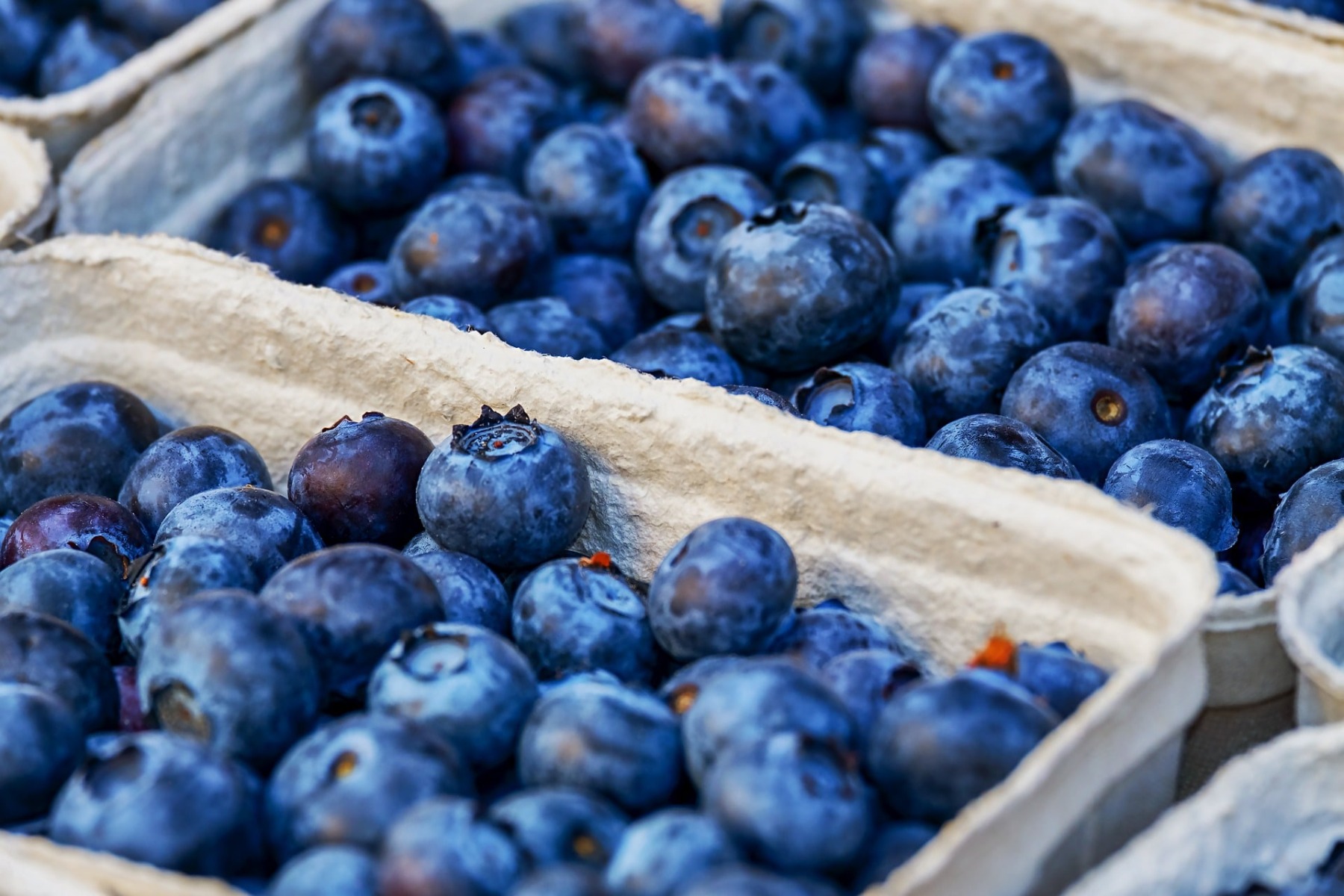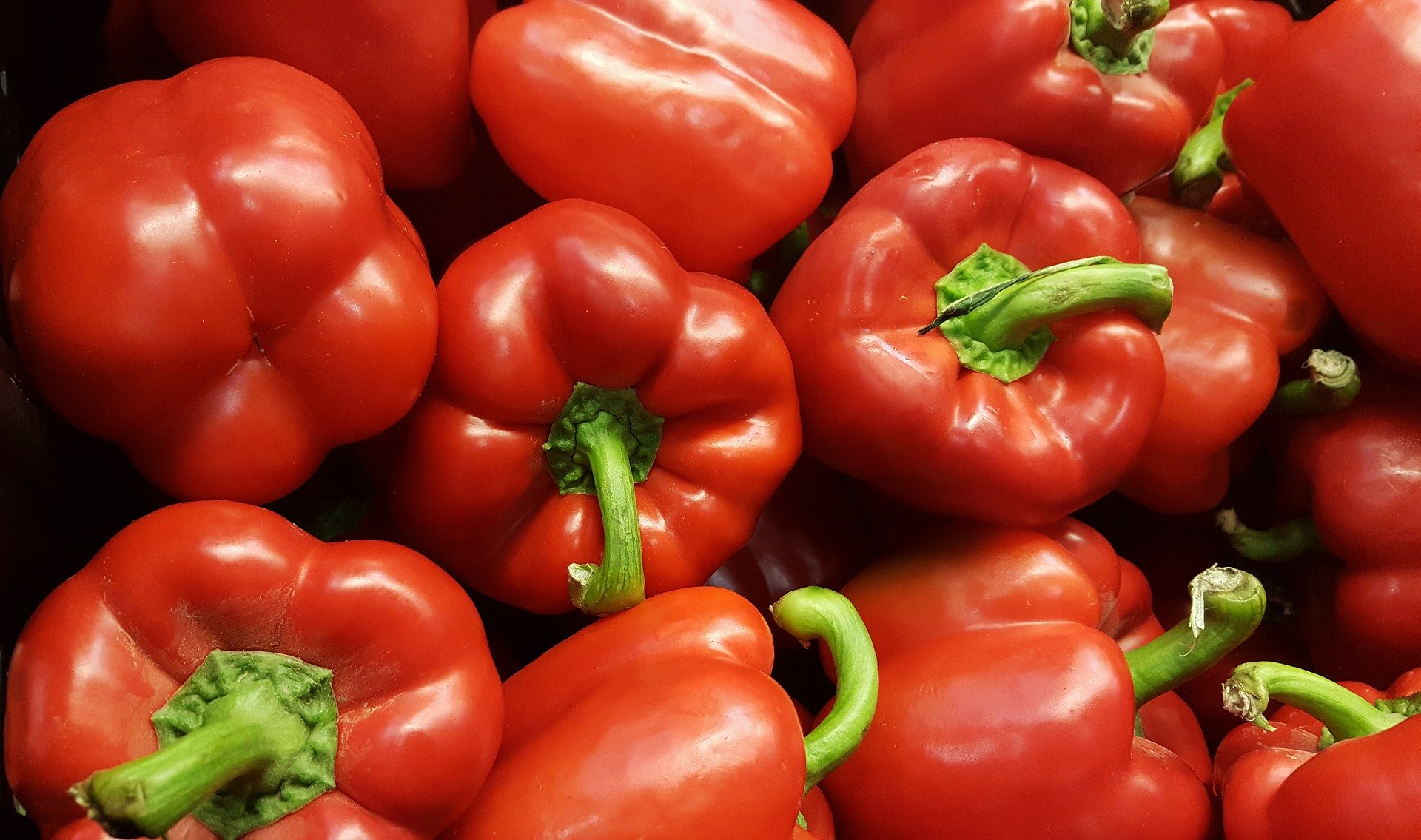Table of Contents
A healthy lifestyle is the best prevention against various diseases. We may not even realize how much harm our bodies are exposed to every day. The immune system must respond to a multitude of viruses and bacteria from the environment in which we are located, not only during the flu period. We can also contribute to protect us every day and support its activity with a healthy lifestyle. Read the article about the immune system, the factors and foods that help and harm our resistance to disease.
The immune system
The human body has its own system, the task of which is to combat all harmful influences and maintain human health. The immune system consists of organs, tissues, cells and proteins that collectively protect the body from bacteria, viruses or parasites that can cause disease or infection. This system is constantly active and constantly detects whether cells belong to our organism or not. When it detects a threat, it triggers an immune response and destroys it. In an immune response, the system releases antibodies that bind to and kill pathogens. [1] [2] [3]
The immune system can be divided into two basic forms [2]:
- Natural immunity – it is the protection of the organism that we gain at birth, and it is the first “line” in the defense and fight against infection. When we are infected, it responds quickly to the harmful pathogen and attempts to wash it out by producing mucus or burning it with fever.
- Acquired immunity – this is the type of immunity that we acquire during our life by vaccination or being exposed to disease. The adaptive system uses antibodies to destroy the enemy and their task is to destroy and get rid of the attacker.
The cooperation of both forms of the immune system can be seen for example in solving a problem. The adaptive system can take 5-10 days to recognize and produce antibodies to destroy an attacker. During this time, the natural immunity will keep the threat at bay and prevent it from spreading. [2]

Fever and inflammation
Fever and inflammation are tools of immunity in the fight against harmful pathogens; The opposite is true, however, the occurrence of inflammation or fever is a good sign because it signals that the body is responding as it should. The purpose of inflammation is to limit the effect of the irritant. Damaged cells release histamine, which causes cell wall enlargement. The result is typical redness, pain and swelling in inflammation. Fever releases white blood cells, increases metabolism, and also prevents the spread of organisms in the human body. [4]
Is it possible to strengthen the immune system?
This may sound surprising, but natural immunity cannot be boosted, because if natural defenses were stimulated, you would constantly experience fever, runny nose, or depression, for example. On the other hand, the acquired immunity can be boosted by vaccination. The vaccines contain a harmless version of the microbe that the adaptive system remembers, and can trigger a rapid attack on the next encounter with the harmful microbe. [2]
In building immunity, the most important are two situations and their order, contact with the virus and then building immunity to it. The human organism cannot work in the opposite way. For this reason, it is not possible to strengthen the immune system before fighting the infection. There are countless viruses of cold and flu, which is why influenza vaccines are not always effective. It is simply not possible to prepare the body to fight all. [5]
The immune system is a complex of cell types that act on different microbes. Scientists do not yet know the answer to which and how many immune cells need to be strengthened. However, it is known that the body constantly creates immune cells called leukocytes (white blood cells) and lymphocytes. The natural and acquired immune system needs the right cell types, in an appropriate amount, to function. Much remains to be learned about the interconnection and complexity of the immune response, but balance and harmony are necessary for the system to function properly. So what can you do to make the immune system work properly? The most sensible way is to get healthy habits that will be beneficial for the whole organism and at the same time the immune system. [2] [5]
You might be interested in these products:
Supporting the immune system
You will best help your body and immune system by acquiring a healthy lifestyle and good habits. Thanks to them the immune system can be better prepared to fight for example against viruses. These include [2] [6]:
- consumption of fruits, vegetables and whole grains
- regular exercise
- drinking alcohol in moderation
- smoking restriction
- maintaining a healthy body weight
- enough sleep
- washing hands
- stress reduction

Food for immune support
You can support your immune system by taking appropriate nutrients to improve your body’s ability to fight harmful microbes.
1. Blueberries – in blueberries is an important flavonoid antocyanin, which is characterized by antioxidant properties and importance for the immune system. According to a 2016 study, flavonoids have an important role in the immune system of the respiratory tract. People who consume flavonoid-rich foods are less prone to upper respiratory tract infections. [1] [7]

2. Citrus fruits – These include lemon, lime, orange, tangerine or grapefruit. Almost all citrus fruits are rich in vitamin C, which is why they are well-known warriors against colds. Vitamin C js useful in supporting the immune system since it is believed to increase the production of white blood cells. [8]
3. Ginger – has anti-inflammatory effects, which means that it is helpful for sore throat or other inflammatory diseases. In addition to its anti-inflammatory effects, it has antioxidant properties and can reduce chronic pain or cholesterol levels. The use of ginger is beneficial for preventing and relieving the symptoms of cold. [1] [8]
4. Turmeric – Yellow pepper is beneficial in boosting immunity due to the content of curcumin. According to research from 2015, curcumin also has anti-inflammatory and antioxidant effects. [1] [9]
5. Red bell peppers – characterized by a high content of vitamin C and beta-carotene. You may be surprised, but red pepper contains twice as much vitamin C than citrus fruits. [8]

6. Almonds – An important vitamin for a healthy immune system is not only vitamin C, but also vitamin E. Its great source is almonds, which also contain healthy fats. When you consume 46 almonds, you get nearly 100% of the recommended daily intake of vitamin E. [8]
7. Fish – fatty fish such as tuna, salmon or sardines are rich in omega-3 fatty acids. Consuming them has many benefits for humans and one of them is their anti-inflammatory effects. A 2014 study points out that long-term use of omega-3 fatty acids may reduce the risk of rheumatoid arthritis. [1] [10] [11]

Are you interested in other benefits of omega-3 fatty acids for humans? Find out all the necessary information in the article Omega-3 fatty acids: do you consume enough and in the right proportion to omega-6?
8. Poultry – Chicken soup during the disease is not just warm water in the stomach. Protects and reduces cold symptoms. Chicken and turkey meat is high in vitamin B6, which is involved in several processes in the human body, such as the formation of red blood cells. In addition, chicken broth is a source of chondroitin, gelatin and other nutrients beneficial to the digestive tract and human immunity. [8]
One important prerequisite for strong immunity is a healthy microflora in the digestive tract. To learn more about probiotics and beneficial bacteria, read our article Probiotics: the importance of beneficial bacteria for athlete’s immunity and overall health.
Vitamins and minerals that support immunity
The ideal solution is to extract vitamins and minerals from the diet, but if you are unsure whether you have received enough, consider nutritional supplements. As the name suggests, they are ‘supplements’ and should therefore only supplement the main source of food and drinks. If you decide to improve immunity with one-component or complex supplements, here are tips for vitamins and minerals that support the functioning of immunity: [15] [16]
- Vitamin C – probably the most well-known immune-promoting vitamin that the body also needs to produce neurotransmitters and collagen. In addition to being found in fruits and vegetables, it is also available as dietary supplements in tablets, effervescent tablets or powder.
- Vitamin A – has antioxidant properties, can be found in vegetables rich in carotenoids, such as beta carotene. The organism converts them into vitamin A, and uses them to protect against infections, for the proper functioning of the eyes and other organs.
- vitamin D – found in fatty fish such as salmon or tuna, we can also get vitamin D from the sun or supplements. In addition to boosting immunity, it is also needed for calcium absorption and bone growth.
- Vitamin E – is an antioxidant that protects cells from damage and helps the body fight infections. Vitamin E can be found, for example, in almonds, peanuts or sunflower seeds.
- Vitamin B6 – is needed in many biochemical reactions and is also important for immune support. Pyridoxine, which is another name vitamin B6, can be found in the diet, but also as a supplement as a separate vitamin or as part of the B-complex.
- vitamin B9 (folic acid) – one of the important type B vitamins that is useful in DNA production and red blood cell production. It is found in peas, legumes and leafy vegetables.
- iron – a mineral that helps to deliver oxygen to cells and in the production of some hormones. Iron is found, for example, in meat, but can also be supplemented.
- Zinc – a mineral important for healthy growth, immune system or wound healing. Zinc can be found in poultry, chickpeas or yoghurt.
- Selenium – important for defense against oxidative stress or for healthy thyroid. You can find it in broccoli, garlic or barley.
Ginger and turmeric are also known for their anti-inflammatory effects, which, in addition to their classic form, are also available as concentrated and tasty drinks. These shots are practical, healthy and just as delicious. However, if you do not like their sharpness, there is also a finer alternative enriched with the juice of mango, aronia or matcha tea.
In the case of supplements, always bear in mind that the dosage stated on the product packaging should be followed.

Factors that weaken the immune system
A healthy lifestyle and the intake of the right foods reinforce the body’s immunity and resistance of the organism. Many factors have a negative impact on our defenses, for which the body cannot adequately defend itself against infections and diseases. Eliminating harmful effects can greatly improve your quality of life and overall immunity.
1. Alcohol consumption – especially alcohol abuse – has a negative impact on our immune system. Immunity is reduced due to a change in the balance of microorganisms in the human body, leading to an increase in inflammation. Among other things, alcohol may also interfere with specific cells of the immune system, such as monocytes and macrophages. [12]

2. Chronic Stress – Stress hormones are part of the human body and have been evolutionarily designed to activate in severe threats. Chronic stress causes low levels of these hormones to be found in the bloodstream. Their occurrence stimulates chronic organ inflammation, ultimately weakening the immune system. [12]
3. Insufficient sleep – one of the important factors affecting the immune system is sufficient sleep. Research shows that the level of cortisol, a stress hormone, is reduced during sleep. Cortisol can suppress the immune function and also increase the signals that activate the immune system. A minimum sleep time of 7 hours is recommended for adults. [13]
4. Smoking – it may not surprise you that cigarettes are not beneficial to our respiratory system. However, according to a 2009 research, smoking also harms immunity. Nicotine elicits an altered immune response characterized by reduced inflammation, decreased antibody response, and reduced signaling via T-cell receptors. [12]

5. Obesity – Immunity and the ability to fight infections may be impaired by obesity. Studies suggest a link between obesity and an increased risk of bacterial infections. It is unclear what causes obesity to affect the immune response. However, scientists suggest that weight gain can disrupt the mechanisms that respond to foreign organisms in the body. [14]
The human immune system is a complex machine to protect against invisible enemies that can be encountered virtually anywhere. It can deal with many bacteria or viruses, but needs sufficient nutrients, sleep, or thorough hygiene to function. It will certainly work better if you support it with a healthy lifestyle and avoid stress or excessive drinking.

The aim of the article is not to raise the warning finger, to panic and to force a pound of oranges a day. Body care in the form of vitamins and other nutrients should become commonplace throughout the year. We strongly believe that the article has provided you with more information about immunity and better protection. Do you want your friends to know about the support of the immunity? Feel free to support the article by sharing.
[1] Lana Burgess - The best foods for boosting your immune system – https://www.medicalnewstoday.com/articles/322412
[2] Hannah Nichols - Tips for a healthy immune system – https://www.medicalnewstoday.com/articles/320721
[3] Erica Lokshin, Christal Yuen - 10 Immunity-Boosting Juices to Drink When You’re Sick – https://www.healthline.com/health/juice-immune-system-boost
[4] Brian Krans, Erica Cirino - Fun Facts About the Immune System – https://www.healthline.com/health/cold-flu/fun-facts#1
[5] Claire Maldarelli - Is it possible to boost your immune system? – https://www.popsci.com/is-it-possible-to-boost-your-immune-system/
[6] Keep Your Immune System Healthy – https://symptoms.webmd.com/cold-flu-map/keep-immune-system-healthy
[7] Vaughan S Somerville, Andrea J Braakhuis, Will G Hopkins - Effect of Flavonoids on Upper Respiratory Tract Infections and Immune Function: A Systematic Review and Meta-Analysis – https://www.ncbi.nlm.nih.gov/pmc/articles/PMC4863266/
[8] James Schend - 15 Foods That Boost the Immune System – https://www.healthline.com/health/food-nutrition/foods-that-boost-the-immune-system
[9] Susan J. Hewlings, Douglas S. Kalman - Curcumin: A Review of Its’ Effects on Human Health – https://www.ncbi.nlm.nih.gov/pmc/articles/PMC5664031/
[10] Freydis Hjalmarsdottir - 17 Science-Based Benefits of Omega-3 Fatty Acids – https://www.healthline.com/nutrition/17-health-benefits-of-omega-3
[11] Daniela Di Giuseppe, Alice Wallin, Matteo Bottai, Johan Askling, Alicja Wolk - Long-term intake of dietary long-chain n-3 polyunsaturated fatty acids and risk of rheumatoid arthritis: a prospective cohort study of women – https://ard.bmj.com/content/73/11/1949
[12] CAITLIN FLYNN - 15 Surprising Things That Can Affect Your Immune System – https://bestlifeonline.com/surprising-things-that-affect-immune-system/
[13] Five Factors that Affect the Immune System – https://www.kemin.com/na/en-us/blog/human-nutrition/five-factors-that-affect-immune-system
[14] Alok Jha - Obesity may harm immune system – https://www.theguardian.com/science/2007/dec/11/medicalresearch.health
[15] Kristin Kirkpatrick - 8 Vitamins & Minerals You Need for a Healthy Immune System – https://health.clevelandclinic.org/eat-these-foods-to-boost-your-immune-system/
[16] Lizzie Streit - Micronutrients: Types, Functions, Benefits and More – https://www.healthline.com/nutrition/micronutrients


Add a comment